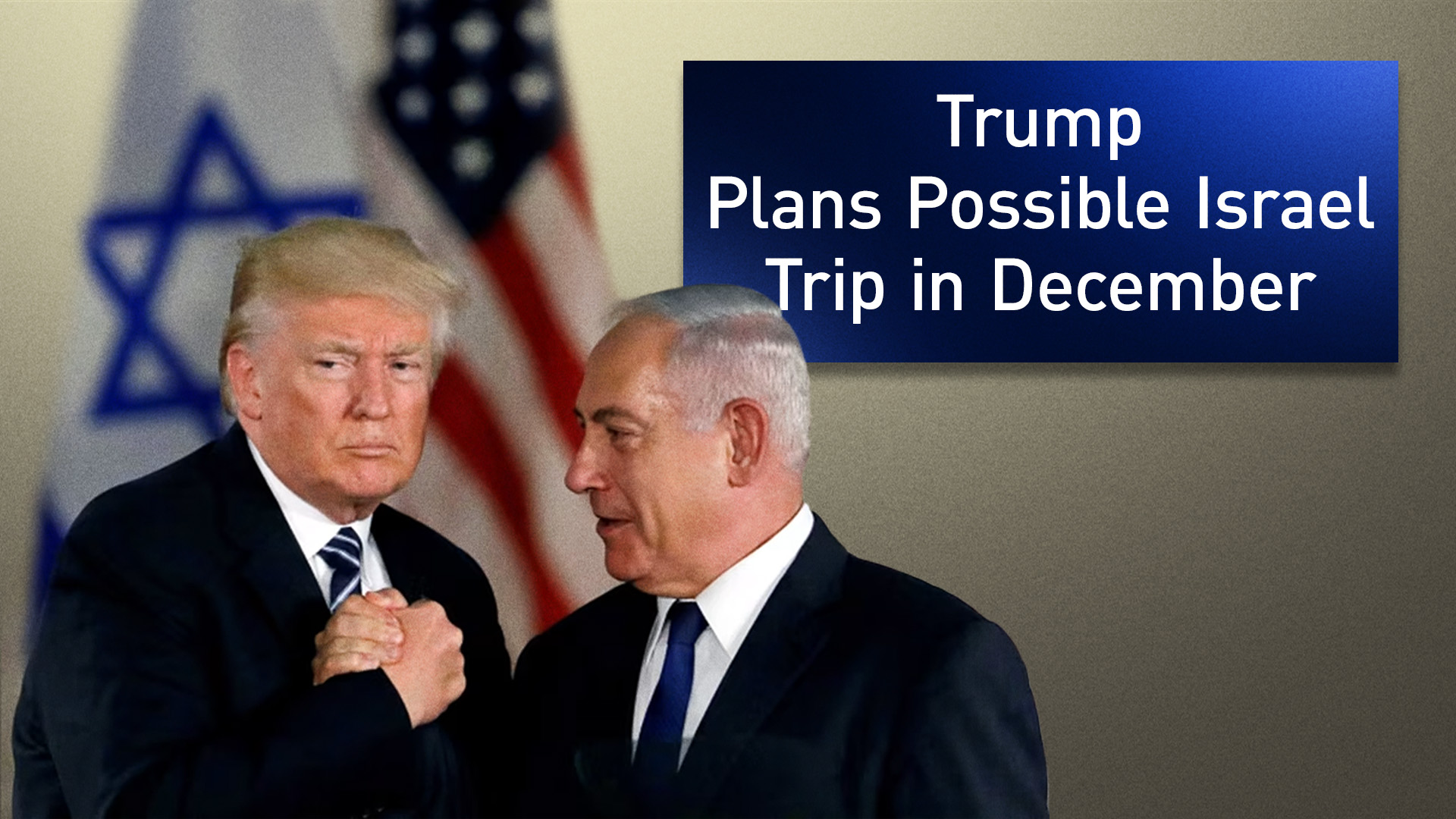Trump Weighs December Israel Visit Following Year of Reinforced Ties
Initial talks are underway for a potential Trump visit to Israel in December, capping a second-term year that saw a dramatic deepening of the U.S.-Israel alliance during the 12-day war with Iran.

ERBIL (Kurdistan24) — Initial coordinations between Jerusalem and Washington are underway for a potential visit by U.S. President Donald Trump to Israel in early December, according to a report Sunday by i24NEWS. Citing its political correspondent Guy Azriel, the outlet confirmed through two Israeli and American sources that these initial interactions are taking place.
If the visit proceeds, it would mark the president’s first trip to Israel during his second term in office, capping a year that saw the U.S.-Israel strategic alliance deepen significantly despite an initial lack of presidential travel to the country.
The potential visit follows a series of high-level engagements between the two leaders on American soil.
Since the beginning of his current term, President Trump has met with Israeli Prime Minister Benjamin Netanyahu at the White House on three separate occasions. However, when Trump made his first state visit to the Middle East in May of 2025—a four-day journey to Saudi Arabia, Qatar, and the UAE—his exclusion of Israel initially fueled observations of a potential diplomatic distance.
Yet, any perception of a rift was dispelled in the subsequent months, which saw a dramatic reaffirmation of the U.S.-Israel strategic partnership. This was most vividly demonstrated during the 12-day war with Iran, where, according to reliable sources, Washington provided robust diplomatic backing and critical intelligence support for Israeli operations. Furthermore, the Trump administration has consistently backed Israel's security stance regarding the Gaza Strip, providing a strong diplomatic shield in international forums and aligning closely with Jerusalem's policies.
During his May trip, President Trump’s public address at the Saudi-U.S. Investment Forum in Riyadh laid out a vision for a "new Middle East born from within," heavily praising Saudi Crown Prince Mohammed bin Salman. His speech championed a future defined by commerce and was anchored by a forceful condemnation of Iran, which he vowed would "never have a nuclear weapon."
At the same time, Trump signaled a potential diplomatic thaw with Syria, announcing the cessation of U.S. sanctions on Damascus. This overarching strategy, centered on bolstering the Abraham Accords, has appeared to prioritize a broad Arab-Israeli alignment against Iran.
This second-term approach stands in contrast to the focus of his first and only presidential visit to Israel in May 2017.
During that two-day trip, where he met with both Prime Minister Netanyahu and Palestinian Authority President Mahmoud Abbas, Trump stated that a key goal was to "advance a genuine and lasting peace between the Israelis and Palestinians." While countering threats from Iran and its proxies was on the agenda, the emphasis has shifted in his second term from direct conflict resolution to building a wider regional coalition.
Throughout his second term, President Trump has continued to criticize the policies of the preceding Biden administration, which he has accused of empowering Iran. In his Riyadh speech, he condemned the Oct. 7 attacks and affirmed Israel’s right to defend itself, a position that was later substantiated by his administration's staunch support during periods of heightened conflict.
The potential visit in December would therefore be viewed less as a recalibration of a distant relationship and more as a capstone to a year of deepened security cooperation, publicly cementing the strategic alignment demonstrated during the recent conflict with Iran.
